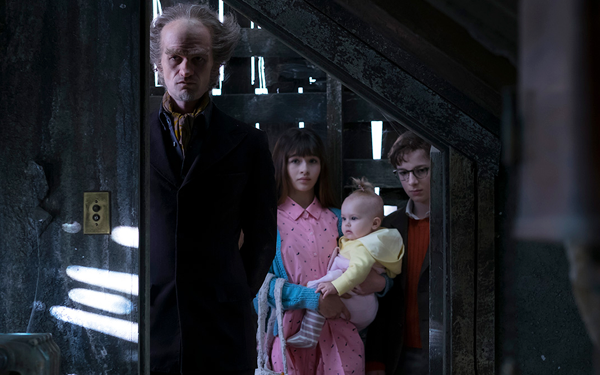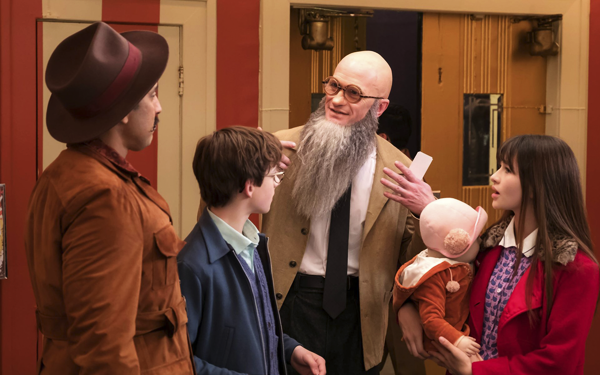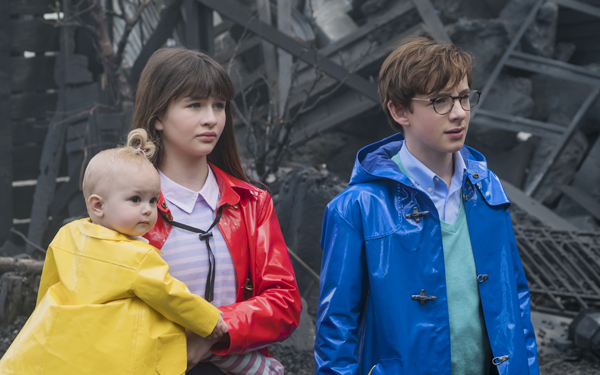
The first two episodes, entitled The Bad Beginning, narrates how the children came into Count Olaf’s care, and the trick he plays in order to obtain the Baudelaire fortune. The Reptile Room has the siblings stay with Dr. Montgomery, a doctor with a penchant for reptiles. In The Wide Window, the siblings were sent to their aunt Josephine whom fears almost anything. The Miserable Mill has the siblings escaping Count Olaf’s clutches, and working in a mill while trying to find some answers. While the siblings are trying to run away from Count Olaf, a side plot is at play, with spies and spy work, raising questions that would be answered by the end of the season.
The opening sequence is fantastic – it is bleak, but cheerful. The theme is very frank with what it wants you to do, but uses an upbeat tone to deliver its message. The same contrast applies to the set of the show; the bright and orderly setting is used as irony to the experiences the siblings would encounter. The bleaker and colder the setting, the more danger the Baudelaires encounter.

The first character we encounter is the character Lemony Snicket, who also serves as the narrator. His prominent role in the show allows him to quickly disperse information, and at the same time steer the narrative to where it needs to go. Since the adaptation boils down to the gist of each book, his presence is a welcome addition to the narrative. Patrick Warburton delivers his lines with a resigned tone, and his demeanor warrants attention, so he doesn’t wash out in the background when providing information.
Violet and Klaus were portrayed well by Malina Weissman and Louis Hynes. Each actor was able to put distinct personalities with their characters, and in turn, is able to contrast each other. While they both exhibit intelligence and rationality, Violet turns out to be the optimist of the two, while Klaus is a bit realist. Having two interesting and distinct characters as leads allows the show to play out its characters’ strengths and weaknesses, as well as grow while the story is ongoing.

If not the one to binge watch, the episodes are best seen per book. The opening sequence alludes to the story of the book, so it’ll be easy to follow. The episodes wrap up nicely while adding to the mystery of the side plot, biding its time to come to fruition, or at least when it begins to intersect with the Baudelaires’ path. The first three books (six episodes) were solid episodes, and I don’t really prefer the fourth book, but it does serve as a wider opening to the organization that the Baudelaires have a connection with. I’m looking forward for the next season and how the narrative would go from there.

Great review! I was a big fan of the books when I was younger but I've been waiting to read a few posts about the series before committing to it. I'm going to start it asap now!
ReplyDeleteThis is a great start to the series, and I'm excited for the upcoming seasons as that's where most of the story's bulk is.
DeleteI'm about halfway through the season and love it. I've not read the books but I know people were annoyed with the film adaptation so I'm glad Netflix are doing the books justice. Great review!
ReplyDeleteI don't remember much about the movie adaptation, but I think I'll watch it just to see how it stands against the show.
Delete